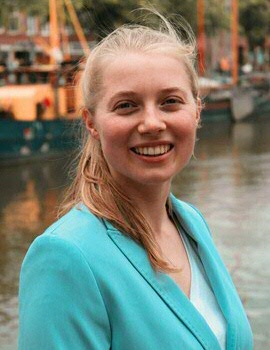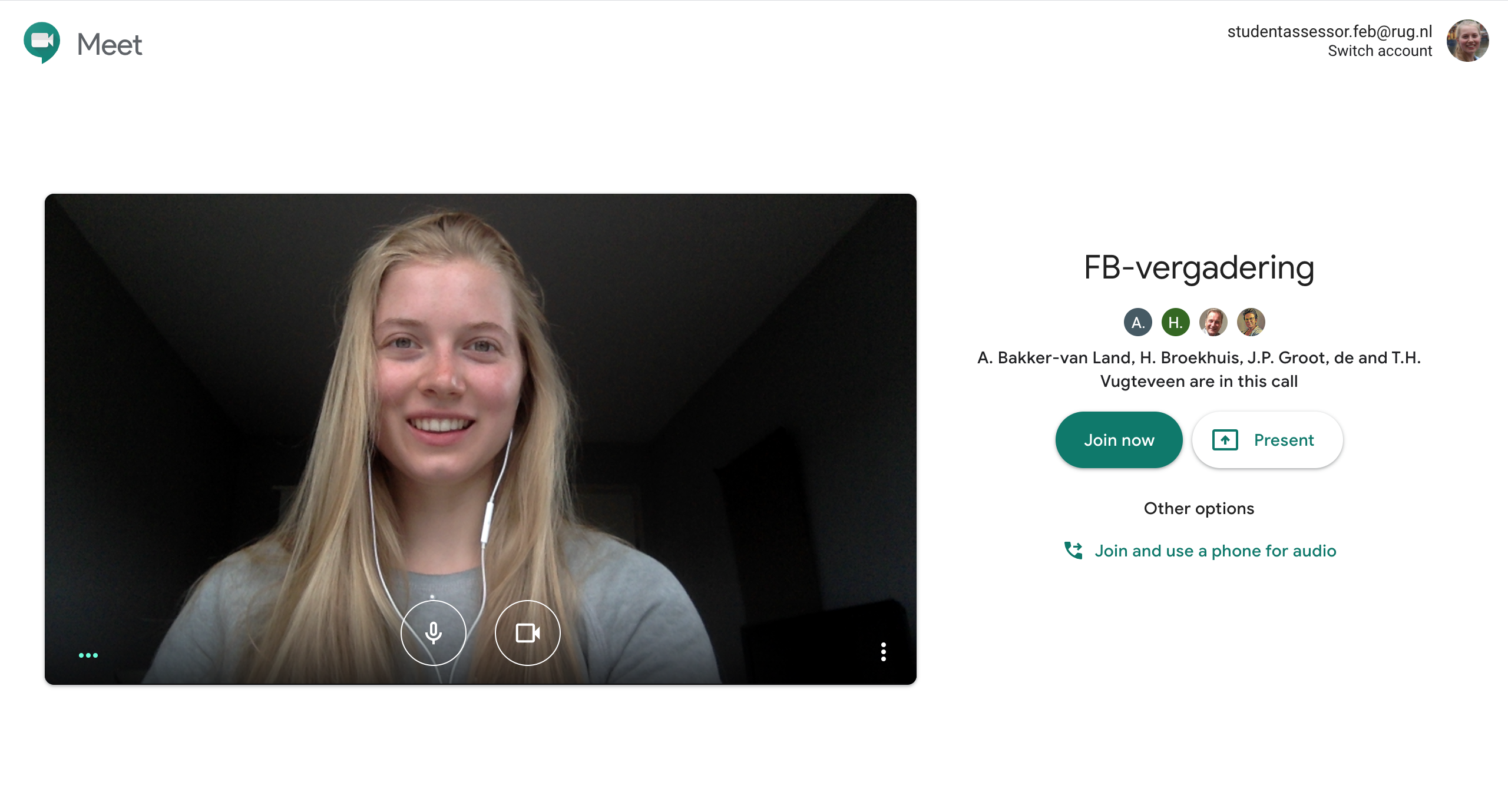Alieke Engel | Faces of FEB
The Faculty of Economics and Business is a faculty with great diversity of people. But who are these people? Within ‘Faces of FEB’ we talk to different students of the faculty and give a little peek into the world of these FEB students. This week: Alieke Engel, student assessor of the FEB faculty board, talks about how she deals with the current Corona situation.

Can you tell me a little bit about yourself?
I am Alieke, 21 years old, and currently in my third year of the bachelor programme Econometrics and Operations Research. Besides my studies I am an active member at VESTING. Past September I also started working as student assessor at FEB, which I have enjoyed very much!
What were your tasks as a student assessor before the Corona situation?
A student assessor is an advisory member in the faculty board. My main task is to be the bridge between students of the faculty and the board. I advise the faculty board on all kinds of student related matters, as well as keep the board informed on the concerns of students. Simultaneously, I keep in contact with various student organizations and keep them up to date with the decisions and strategies of the faculty board.
What kind of matters should we think of?
The main objective of a student assessor is to ensure that students are involved in the decision-making process by the FEB faculty board. Since students are part of so many aspects of the faculty, this includes a whole range of things. For example, this year, I’ve been very involved in the forming of a new strategic plan for the upcoming five years, starting in 2020.
What is a strategic plan?
A strategic plan provides a framework for the ambitions the university and the faculty have, giving them a certain direction. It includes changes and further development of various aspects of the faculty, in order to be taking steps forward. For example, the last strategy plan included ambitions surrounding internationalization. Currently, approximately a quarter of FEB students are international students. Ironically, part of the new strategic plan wants to aim for digitization in education. Corona has sped up that process a little quicker than we had anticipated.
Yes, the Corona situation has changed a lot! How are you dealing with the current situation?
The situation definitely took some getting used to. When the government announced that the universities had to close, we quickly came together for a crisis meeting the next morning. After that, all the meetings immediately switched to a digital environment. Since the regulation had a huge impact on the faculty and there was a lot to decide on, we introduced daily meetings. Every morning we discussed what needed to be done and what kind of decisions needed to be made for the upcoming exam period. Quickly, the board decided to have no examinations, so we could provide a clear answer to students, hopefully relieve some stress levels, and ensure we had time to come up with proper solutions.

So you are a kind of representative for students within these meetings?
Yes, I try to be in contact with members of the university council, the student factions of the faculty council, Quest, and the study associations, so I get an idea of what is going on among students. Being a student myself makes the job a little easier, since I notice what students would need right now because of my own experiences. At the moment I think that is mainly communication. A lot is going on behind the scenes, but this is not always visible for students.
What are some of the challenges the faculty is currently facing?
One of the biggest challenges, especially in these unique circumstances, is finding a balance between the workload of students and the workload of the organization, while also maintaining quality of education. Another challenge is the different levels on which decisions have to be made. Sometimes the faculty can decide themselves, sometimes things need to be decided on a central UG level, and sometimes decisions are made on a national level.
Could you name an example?
An example is the Binding Study Advice (BSA). We had to wait for the regulations that were set up by the Ministry of Education, Culture, and Science, then it had to be worked out on a central level to develop guidelines, and then it was up to the faculty to implement it and ensure further communication to students and staff. Another document we are dealing with is what is known in Dutch as ‘de harde knip’. This is whether students can start with their master if they have not completed their bachelor yet due to potential delays caused by the Corona measures. Decisions have been made on a national level and now it is up to the UG to come up with further policies.
That seems like a difficult job to do!
It’s definitely not easy. An added difficulty is that FEB is one of the big educational faculties at the University of Groningen. We have an extremely large number of courses and examinations. I do think, however, that as a FEB community we will get through this crisis! The past few weeks students and staff have already shown a great amount of resilience in switching to online education and thinking outside the box.
Is there anything you would advise students during this Corona situation?
I think it would be to be patient. With yourself, your teachers, online classes and examinations, and with the Corona situation in general. Don’t be too hard on yourself. None of us have ever experienced anything like this before, not everything will run smoothly during this time. I would also like to add to that that if you are struggling with something, do not be afraid to reach out to, for example, study advisors.
Can students share any concerns or suggestions they might have with you? Can they contact you?
Of course! I like to have a complete picture of what is going on among all the different groups of students, so the more I hear, the better! You can reach me at studentassessor.feb@rug.nl Please also fill out the survey that was sent out to students last week!
